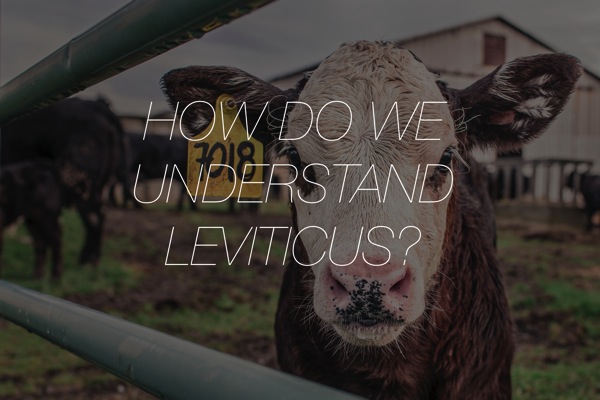 In a recent interview with Tullian Tchividjian, he recommended that young pastors learn to “Comprehend high and communicate low.” For pastors and theologians that give their live to studying a library of complicated theological works, this can be difficult.
In a recent interview with Tullian Tchividjian, he recommended that young pastors learn to “Comprehend high and communicate low.” For pastors and theologians that give their live to studying a library of complicated theological works, this can be difficult.
We’ve all experienced at some point or another being in a conversation with somebody that knows so much about something that it seems like they are talking in a foreign language.
It happens when pre-teens start talking about Minecraft. A bunch of pre-teens gather around talking about their servers, texture packs, briefing, or something else that I really don’t understand.
Meanwhile you are standing there like, “So you build stuff?"
This happens to me whenever I get my car fixed. The professionals know so much about cars that an ordinary person like myself cannot understand anything beyond “It is going to cost $500 because it is broke.”
As preachers, we eat, sleep, and breathe theological works. We love to read books by guys who are dead and wrote brilliantly hundreds of years ago. We love to listen to other preachers and understand how they proclaim the Word and find out what books they are reading and who they are learning from.
But the people we preach to aren’t in the same boat. I’m not preaching to seminarians or professors. I’m not preaching to theological connoisseurs who treat their preachers like tasting a fine-wine; I’m preaching to ordinary people who are looking for a sermon in a language that they can understand with a theology that matters for the life they live.
Martin Luther said it this way:
“To preach plain and simple is a great art: Christ himself talks of tilling ground, of mustard seed, etc; he uses altogether homely and similitudes. Cursed are all preachers that in the church aim at high and hard things, and neglecting the saving health of the poor unlearned people, seek their own honor and praise…When I preach, I sink myself deep down. I regard neither Doctors or Magistrates, of whom, are here in this church above forty; but I have my eye to the multitude of young people, children, and servants, of whome are more than 2000. I preach to those.” - Martin Luther
I pray that the more I learn and study theology, the harder I work to translate the truth of God’s word into the language of the people I serve. In the words of JI Packer, my hope is that I would learn to “Feed sheep, not giraffes."

 Our family often goes on a vacation with a number of our friends to a cottage up north. One of the activities our families enjoy is taking the ridiculous number of kids we have and piling them onto a pontoon boat.
Our family often goes on a vacation with a number of our friends to a cottage up north. One of the activities our families enjoy is taking the ridiculous number of kids we have and piling them onto a pontoon boat. Vision. Churches, organizations, non-profits, and even sometimes families all talk about vision. And these conversations around vision are often, although not exclusively, helpful. As Christians, we believe that the God is at work in this world both in the work of believers and unbelievers. Because of this, there is a lot that we can learn about the organization of a congregation and leadership from those who have no interest or appreciation for Church.
Vision. Churches, organizations, non-profits, and even sometimes families all talk about vision. And these conversations around vision are often, although not exclusively, helpful. As Christians, we believe that the God is at work in this world both in the work of believers and unbelievers. Because of this, there is a lot that we can learn about the organization of a congregation and leadership from those who have no interest or appreciation for Church. My blog is officially 4 years old today. After 400 of posts over the past 4 years, it has been fun to see how the blog has changed, grown, and become what it is today. This blog wasn’t the first time I had blogged. I had a livejournal back in the day and even blogged while I was an intern for a short season. But four years ago, I decided to venture back into blogging.
My blog is officially 4 years old today. After 400 of posts over the past 4 years, it has been fun to see how the blog has changed, grown, and become what it is today. This blog wasn’t the first time I had blogged. I had a livejournal back in the day and even blogged while I was an intern for a short season. But four years ago, I decided to venture back into blogging. While most of us have grown up with the rhyme, “Sticks and stones may break our bones, but words will never hurt me,” we know that words have far more power than that simple childhood rhyme led us to believe.
While most of us have grown up with the rhyme, “Sticks and stones may break our bones, but words will never hurt me,” we know that words have far more power than that simple childhood rhyme led us to believe. Why do Christians pick and choose which laws to follow in Leviticus? How can someone wholeheartedly affirm one passage that says declares one sin an abomination and then flat out ignore another that forbids eating shellfish.
Why do Christians pick and choose which laws to follow in Leviticus? How can someone wholeheartedly affirm one passage that says declares one sin an abomination and then flat out ignore another that forbids eating shellfish. Criticism sucks.
Criticism sucks. If you are anything like me, tragedy causes you to question everything you say to the people you care about. You question whether or not to say anything at all. In order to help myself in these situations, I’ve decided to think about it ahead of time and write down some bible verses that are helpful for a variety of difficult situations in which I want to
If you are anything like me, tragedy causes you to question everything you say to the people you care about. You question whether or not to say anything at all. In order to help myself in these situations, I’ve decided to think about it ahead of time and write down some bible verses that are helpful for a variety of difficult situations in which I want to  In our world it is easy to see marriage as nothing more than a piece of paper. But marriage is about more than a simple, legal binding between two parties. It is about two people before God, their family, and their friends making a promise.
In our world it is easy to see marriage as nothing more than a piece of paper. But marriage is about more than a simple, legal binding between two parties. It is about two people before God, their family, and their friends making a promise. Ideas are cheap.
Ideas are cheap. Imagine the disciples if they were encountered with a discussion of “worship styles.” I can only imagine their reaction to somebody suggesting they prefer contemporary worship or traditional worship as being, “Huh?” Or consider their confusion when worship is a genre of music and not what one does with all of their life.
Imagine the disciples if they were encountered with a discussion of “worship styles.” I can only imagine their reaction to somebody suggesting they prefer contemporary worship or traditional worship as being, “Huh?” Or consider their confusion when worship is a genre of music and not what one does with all of their life. As a preacher, one of the most valuable tools that I find in
As a preacher, one of the most valuable tools that I find in  The word
The word  We are missionaries in our world. We have been sent with the promise of the Gospel to our broken world and are called to go into our
We are missionaries in our world. We have been sent with the promise of the Gospel to our broken world and are called to go into our  Leaders are learners. And learning means listening to teachers, reading books and articles, and practicing new learnings. As a ministry leader, one of the topics that I love to read about is the subject of leadership. Because I love to read these types of books and think that other leaders should also be reading, here is a list of my favorite leadership books. They are in no particular order, just 20 leadership books that came to mind.
Leaders are learners. And learning means listening to teachers, reading books and articles, and practicing new learnings. As a ministry leader, one of the topics that I love to read about is the subject of leadership. Because I love to read these types of books and think that other leaders should also be reading, here is a list of my favorite leadership books. They are in no particular order, just 20 leadership books that came to mind.